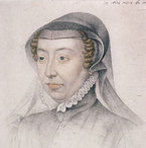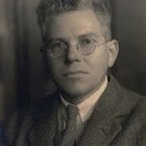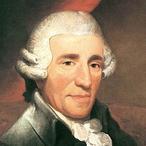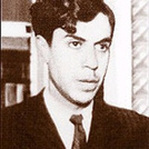|
The British Library, home to 200 million items, is currently running an exhibition called Chopin: The Romantic Refugee. The exhibition, complete with letters, recordings and many other historical documents, links music, politics the personal stories of those connected with the composer, and presents his work and personality in the context of the issues of the time.
Several events were planned by the British Library in conjunction with the exhibition. The one I went to last night was called Nocturne: The Romantic Life of Frederic Chopin. Nocturne was compiled by Lucy Parham, who also plays the twelve pieces listed below, from the scores of his music, and the letters, diaries and correspondence of Chopin, George Sand and their contemporaries. In the program, Parham says that: "Although Chopin's piano music remains one of the most recognisable styles of composition...as a man he remains, to a certain extent, an enigma. Many of his letters have been destroyed and of these that remain, very few give a real personal insight into the man himself." It is commendable, then, that Parham manages to find just those items which manage to illucidate the mind of the great Romantic. The letters, diaries and correspondence were read by Alex Jennings, known for roles such as Waking the Dead, Spooks, Miss Marple: They Do It With Mirrors, and Bringing Down the House, among other things, and Juliet Stevenson, best known for her roles in Truly, Madly, Deeply and The Politician's Wife. The story of Chopin's life, from his birth in Poland, his move to Paris, his friendship with Balzac, Delacroix, Berlioz and Liszt, his teaching practice founded by his frisndship with the Rothschilds, his relationship with Georges Sand, focusing on their trip to Majorca, his last five concerts given in England and Scotland, and his death, nursed by his beloved step-daughter Solange, but without Sand, is told by an intermingling of these texts with the very insightful choice of music performed by Parham. My favourite piece of the evening was the Prelude in Db Op. 28 (raindrop), which was hauntingly performed and complemented perfectly the information that it was the rainy weather in Majorca that precipitated Chopin's consumption. What is interesting for me is that, rather than the texts giving insight to the music, rather it was the music which ultimately produced a greater understanging of the texts. Parham herself states in the program that it is: "through the music that we can come to know the man." The Exhibition runs until Sunday 16th May. Full of treasures and information, the curators have really done a great job of putting the man and his music in context with the times in which he lived. Further details of the Exhibition can be seen here. The program was as follows: Nocturne in C minor Op. 48 No. 1 Polonaise in A Op. 40 No. 1 Waltz in C# minor Op. 64 No. 1 Etude in Ab Op. 25 No. 1 Mazurka in D Op. 33 No. 2 Ballade No. 3 in Ab Op. 47 Interval Mazurka in A minor Op. 67 No. 4 Prelude in Db Op. 28 (raindrop) Prelude in G minor Op. 28 Nocturne in Db Op. 27 No. 1 Waltz in Db Op. 64 No. 2 (petit chien) Ballade No. 4 in F minor Op. 52 Part 1, Part 2
0 Comments
|
Categories
All
Archives
September 2014
|
MOST VIEWED POSTS
© James Edward Hughes 2013
 RSS Feed
RSS Feed





